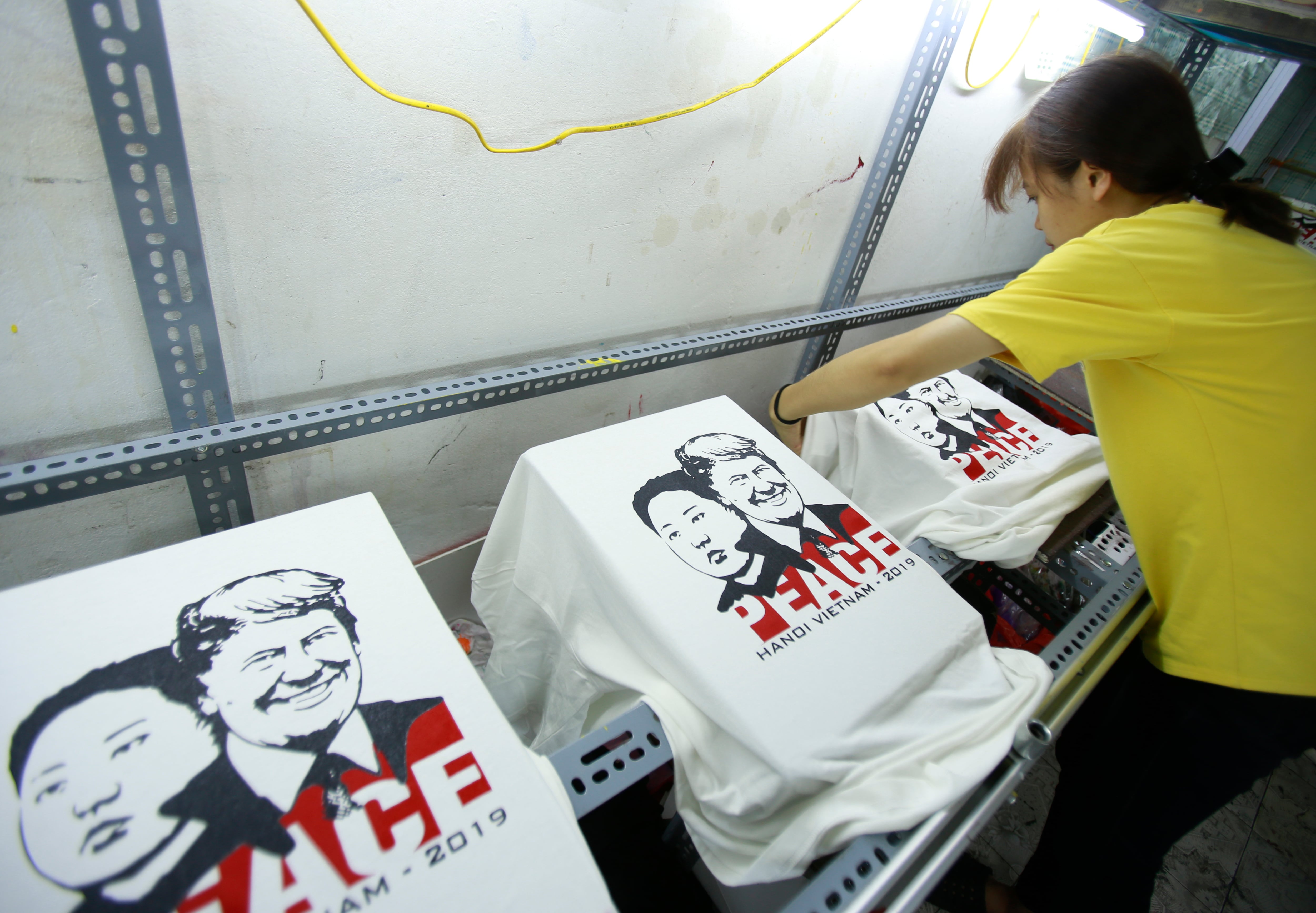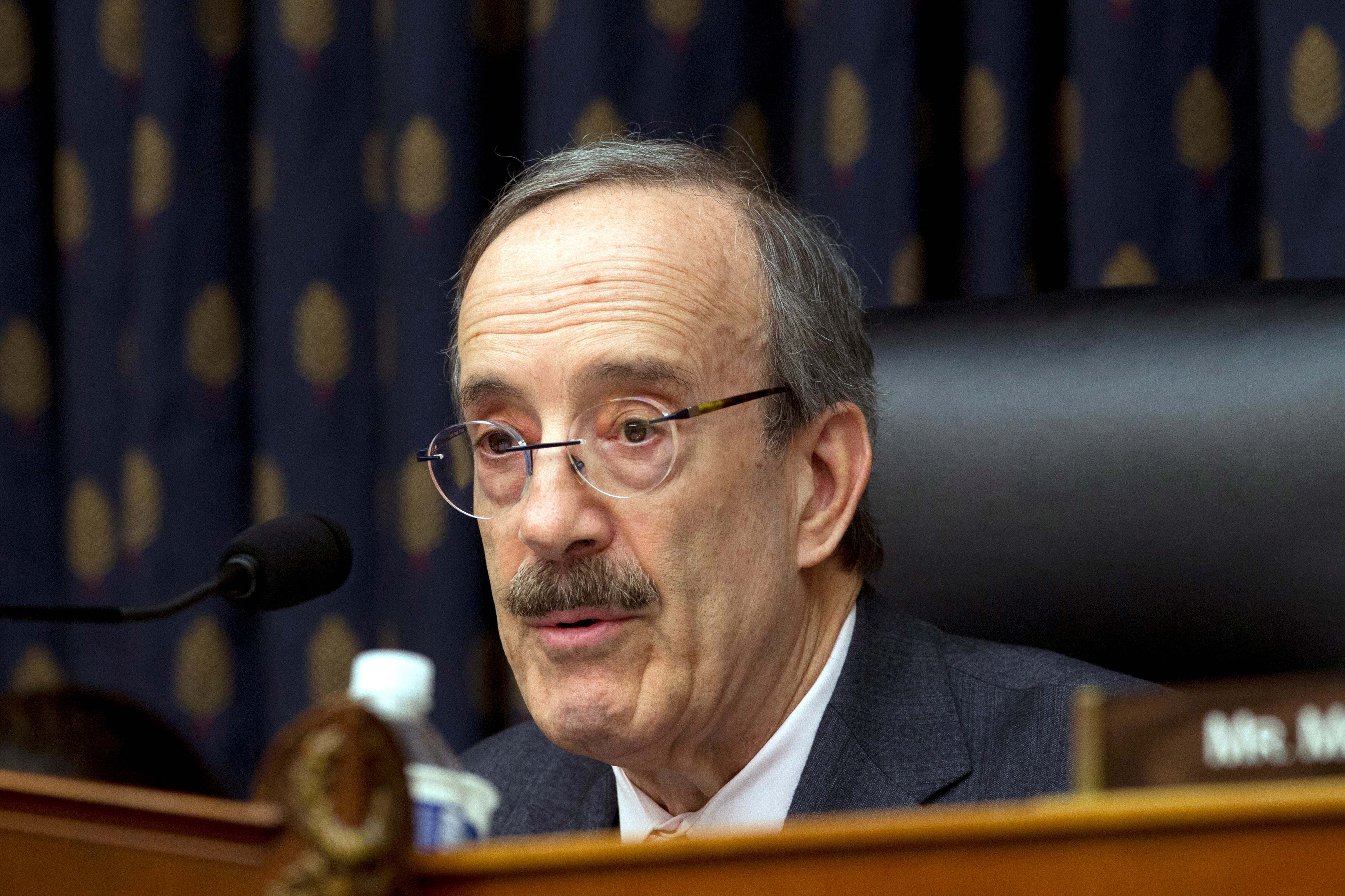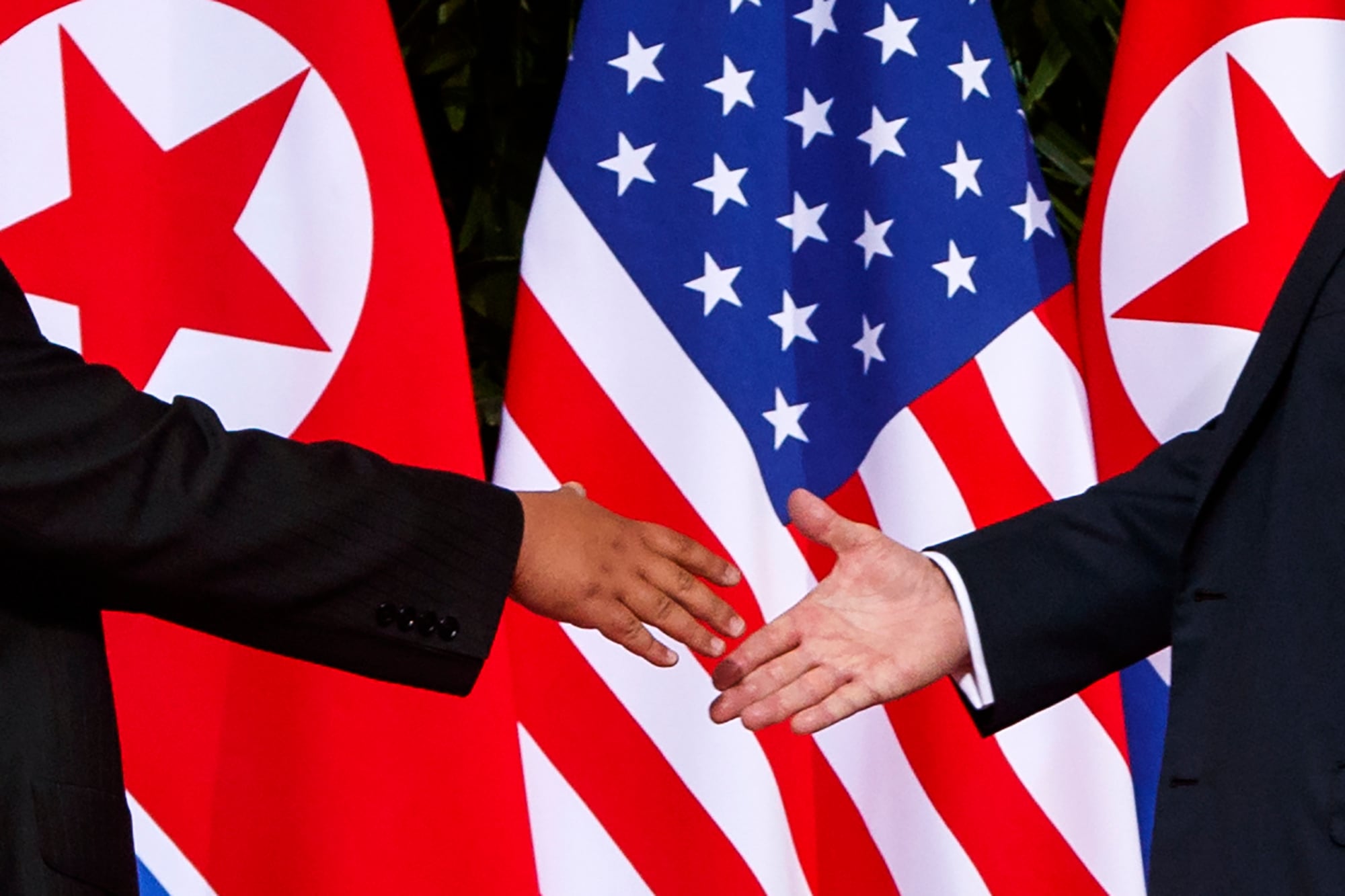WASHINGTON — Ahead of President Donald Trump’s talks with North Korean leader Kim Jong Un this week, a key Democratic House chairman warned the president off lifting sanctions without substantive concessions from Pyongyang on human rights or denuclearization.
“We shouldn’t lift sanctions in response to hollow concessions, or empty gestures or promises of future reforms. Empty gestures may be enough for this president, but they won’t fool me,” House Foreign Affairs Committee Chairman Eliot Engel, D-N.Y., said Monday.
Speaking at a Center for American Progress event, Engel set out some guardrails. Tough U.S. sanctions imposed for the regime’s human rights abuses or illegal nuclear program, he said, should not be eased in exchange for a political declaration of a cessation of hostilities with Seoul or economic integration with South Korea.
“If North Korea wants sanctions lifted, there needs to be real progress on human rights,” Engel said. “For nuclear sanctions to be lifted, there needs to be real progress on denuclearization—move for move.”
Engel, on Monday, vowed to keep a close eye on the results of the summit and haul administration officials before his committee if he feels America’s security has been jeopardized. On the other hand, a good outcome would be if North Korea’s submission to a rigorous verification regime to guarantee any concessions it makes.
“The devil would be in the details but if the administration brings us a deal that satisfy those requirements it will get a fair hearing. That’s my commitment,” Engel said.
RELATED

Trump is scheduled to meet with Kim for a second face-to-face summit aimed at bringing the rogue regime in line with international standards, including ending their nuclear weapons program.
The meeting, scheduled in Vietnam on Feb. 27-28, builds off the meeting between the two men last June and will follow the same format, according to White House officials. That means limited public visibility into the specifics of the talks, beyond what the leaders say after the fact.
Before departing Washington Monday, Trump predicted a “very tremendous summit” and held out economic benefits for North Korea, if it chooses to denuclearize.
“We want denuclearization, and I think he’ll have a country that will set a lot of records for speed in terms of an economy,” Trump told a group of governors gathered at the White House.

Some lawmakers and North Korea experts worry that Trump will grant too many concessions to Kim without making him honor his pledge to give up his nuclear weapons.
They note that Kim still has a stockpile of nuclear warheads and ballistic missiles and the ability to produce the uranium or plutonium needed to make more. Kim has not yet signed any deal to denuclearize his nation, and commercial satellite images indicate that he’s actually moving forward with his program.
Secretary of State Mike Pompeo said Thursday the U.S. will not move to ease economic sanctions on North Korea until it is confident that the nuclear weapons threat from Pyongyang has been “substantially reduced.”
However, he seemed to leave open the possibility that sanctions relief was possible short of complete and verifiable denuclearization of the Korean Peninsula.
The U.N. General Assembly, in December, condemned North Korea’s “systematic, widespread and gross violations of human rights” and its diversion of resources into pursuing nuclear weapons and ballistic missiles over the welfare of its people.
It noted “with concern” that over 10 million North Koreans are estimated to be undernourished and that there is “an unacceptably high prevalence of chronic and acute malnutrition” in the reclusive northeast Asian nation.
RELATED

Last month, Trump swiped at his intelligence chiefs after Director of National Intelligence Dan Coats told Congress that Kim is unlikely to relinquish its nuclear weapons and production capabilities, because Kim views them as critical to regime survival. Engel, on Monday, dinged Trump for that.
“President Trump declared in Singapore last year that North Korea no longer posed a threat, but as far as I can tell there's been no fundamental improvement in the security of America or our allies,” Engel said. “Mixed messages from the president and his top advisers muddled our strategy and undermined our negotiating position.”
The Associated Press contributed to this report.
Joe Gould was the senior Pentagon reporter for Defense News, covering the intersection of national security policy, politics and the defense industry. He had previously served as Congress reporter.





